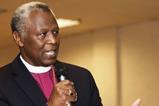One principal is predicting 50 per cent of all UK Bible colleges will close within the next two years. Is he right?

“In recent meetings with the Association of Bible College Principals, it seems like 50 per cent of Christian Bible Colleges in the UK will close in the next year or two.”
So says the head of Kings Evangelical Divinity School (KEDS). Dr Anthony Royle, who has only been head of the school for less than a year, has wasted little time in sounding the alarm for the whole sector.
The list of challenges facing theological institutions is daunting: the long hangover from the covid pandemic, declining student numbers, the cost-of-living crisis and all this taking place within a climate of relentless ongoing church decline across Britain.
Ironically, Royle’s small online-only college focusing on biblical interpretation is in a better position than most to adapt and survive, but Royle said he feared many of his colleagues and competitors would go to the wall.
Recent closures
The number changes depending on how you define them, but there are roughly 50 Bible colleges across Britain. A few are thriving but most are just about surviving, and some are really struggling.
Colleges have always come and gone, but there have been a high number of closures over the past five years. St John’s, Nottingham closed its doors in 2019, while Redcliffe College in Gloucestershire shut down in 2020. The small Nexus Institute for Creative Arts in London is teaching out its final cohort of students, while Oasis Academy came to an end in 2019. The Institute for Children, Youth and Mission (known as CYM) has stopped recruiting for its degree programmes.
At its recent General Synod meeting, the Church of England revealed it was seeing hundreds fewer people come forward for ordination training compared to just a few years ago, putting huge strain on its own network of colleges.
A perfect storm
So why are fewer people coming forward to study theology? Principals pointed to an array of factors – some called it a “perfect storm”.
Firstly, when money is tight for almost everyone after a period of high inflation and rising costs, studying theology can feel like a luxury most Christians simply cannot afford.
Graham Tomlin, who helped launch St Mellitus College (now operating out of four sites across England) before becoming a bishop in the Church of England, said Christians today were less interested in giving up their jobs to go and live at a college for a three-year residential course, especially with much less certainty of a job in your denomination at the end of it.
With more households seeing both parents working, it was harder to uproot families for a prolonged period of study. This was why St Mellitus had helped pioneer “mixed mode” training in the CofE (already commonplace in many free church contexts) where students do one or two days study each week but stay living and working in their existing churches while training.
However, many pointed to bigger factors such as secularisation. Sean Doherty, the principal of Trinity College in Bristol, said given the “very sharp decline” of the church it was “inevitable” that “the number of people who are going to be coming forward for studying theology is going to be declining as well”. Fundamentally, this is not really a financial crisis or a student crisis, but a mission crisis, he argued.
Andy du Feu, who leads Moorlands College in Dorset, says his college recently redid their prospectus and sent out copies to every church on their mailing list, only to find a surprisingly high number returned to sender as the church no longer existed. The process of colleges having to close was not a future concern, it was already happening right now, he warned, and even for those not at death’s door “the issue of viability is always there”.
Vision
There’s an even more fundamental question, too: Is there still a vision and excitement for sending members off to study the Bible?
“The value of a theological education is at a low at the moment and this might be one of the reasons why we’re not able to recruit so well,” observed Royle from KEDS.
King’s School of Theology (KST) principal Mark Norridge said he was not alone in believing that within churches “Biblical literacy is lower than it ever has been”, with fewer Christians bothering to read their Bible at all, let alone being open to the idea of studying it in depth.
But others disagreed, including Doherty from Trinity who said people seemed as hungry as ever for theological education (his college recently saw record numbers join its part-time course even as their full-time programmes have dwindled). Tomlin also dismissed the idea of a diminished appetite for theology, instead pointing to a lack of creativity and imagination among colleges to reinvent how traditional programmes are delivered.
we exist because we want to see kingdom of God expressed through the church
Believers (and even pastors) are wrong to assume they can get by just fine with the plethora of content available on YouTube or elsewhere online, say the principals. How can the discernment needed to filter and assess the millions of hours of sermons freely available online be built, except through in depth, rigorous theological education? The value of colleges was not just in the knowledge they dropped into students’ heads, but in the ability they gave Christians to “critically engage with diverse voices and to come to a conclusion that is biblical”, Royle argued.
Evolution
While everyone shared his concerns about the viability of the sector, few agreed that as many as half of all colleges could be facing oblivion. Du Feu from Moorlands said it was important to recognise the mixed picture, with some colleges doing fine and even growing, alongside those which were struggling.
What is clear is that Bible colleges are changing, and must continue to evolve rapidly, to ensure they can ride out this current storm. Accelerated by covid, almost all colleges now offer multiple hybrid and flexible courses, where people can stay living and working in their existing communities while also studying, often online or with occasional residential weekends. And yet, despite this necessary (and welcome for many) shift, everyone agreed residential, in-person study was an important piece of the puzzle that should not get junked in a desperate drive for financial savings.
Doherty from Trinity acknowledged it was a “privilege” for students to be able to come and spend years living and studying, immersed in a formational community of fellow learners and tutors, but not something to be casually tossed aside. Online platforms such as Zoom, helpful though they may be, cannot replace the transformative nature of physical community, Tomlin argued. “Theological learning is not just about learning stuff in your head. It’s about formation of character. It’s about the kind of person you’re becoming, and it’s difficult to do that just through YouTube.”
Solutions
Even so, colleges are frantically exploring new revenue streams and student pools, including bringing in more overseas learners and lay students.
Another tactic is to emphasise the importance of theological education for those who are not seeking full time, salaried ministry positions.
“We are not a vicar-training factory” is one of du Feu’s key mottos, and something all principals were keen to emphasise. “Theology is for everyone” came up unprompted several times – understandable in an era when colleges are trying to boost recruitment but also key to enabling “more robust, new theological reflection that works out what it means for today’s changing world”, as Norridge from KST put it.
We are not a vicar-training factory
Another possible solution could be a round of mergers and rationalisation. Over a decade ago a consortium of Bible colleges did come together to explore some kind of federation model, du Feu recalled, but it came to nothing as not enough were actually “looking down the barrel”. Royle said more collaboration and “Kingdom mindsets” among colleges would help, but others warned that shared working was always challenging, especially for institutions keen to maintain their denominational affiliation or historical flavour and specialisms.
Tomlin also remembered a round of consolidation and rationalisation among Anglican colleges in the 1990s, which mostly had not really worked. But if the current decline in student numbers did not turn around soon either some colleges would have to close/merge, or they would have to diversify and find other sources of income to survive, he predicted.
Another possibility was for Bible colleges to seek their own degree-awarding powers, rather than always relying on validation from a separate, often secular and also highly pressured, university. As well as saving money in validation fees, it also liberates colleges from having to jump through the hoops set for them by the partner university. Spurgeon’s College, in London, has just become the first to be granted these powers, which could be a game-changer if they now became validating partner for other evangelical bodies. Moorlands is also well on the way to meeting the requirements to secure degree-awarding powers.
A necessity
The picture is mixed and complex. But despite the many challenges facing theological institutions, there remained a stubborn streak of optimism among most, perhaps driven by a conviction theological study was essential, and not a Christendom-era indulgence to be dispensed with.
Not all colleges can or should survive, but theology will persist. “Theological study is not a luxury – it’s a necessity for the church,” Tomlin said. If the church’s leaders are not trained in biblical discernment, able to tell good teaching from false, “then the church will decline even more because it offers something which is just a dim echo of what everyone else thinks.”
Colleges did not exist for their own sake, but to build up “stronger, healthier churches”, Norridge added. “That’s the end goal. I’d certainly think theological institutions have missed that. We don’t exist for ourselves, we exist because we want to see kingdom of God expressed through the church.”
Doherty said he did not get out of bed each day motivated to preserve the number of colleges in the UK. Ultimately “Jesus is the theological educator, and as long as there is a church, Jesus will call people to think about him and to know him. And as soon as that is happening, theology is happening”.





































1 Reader's comment